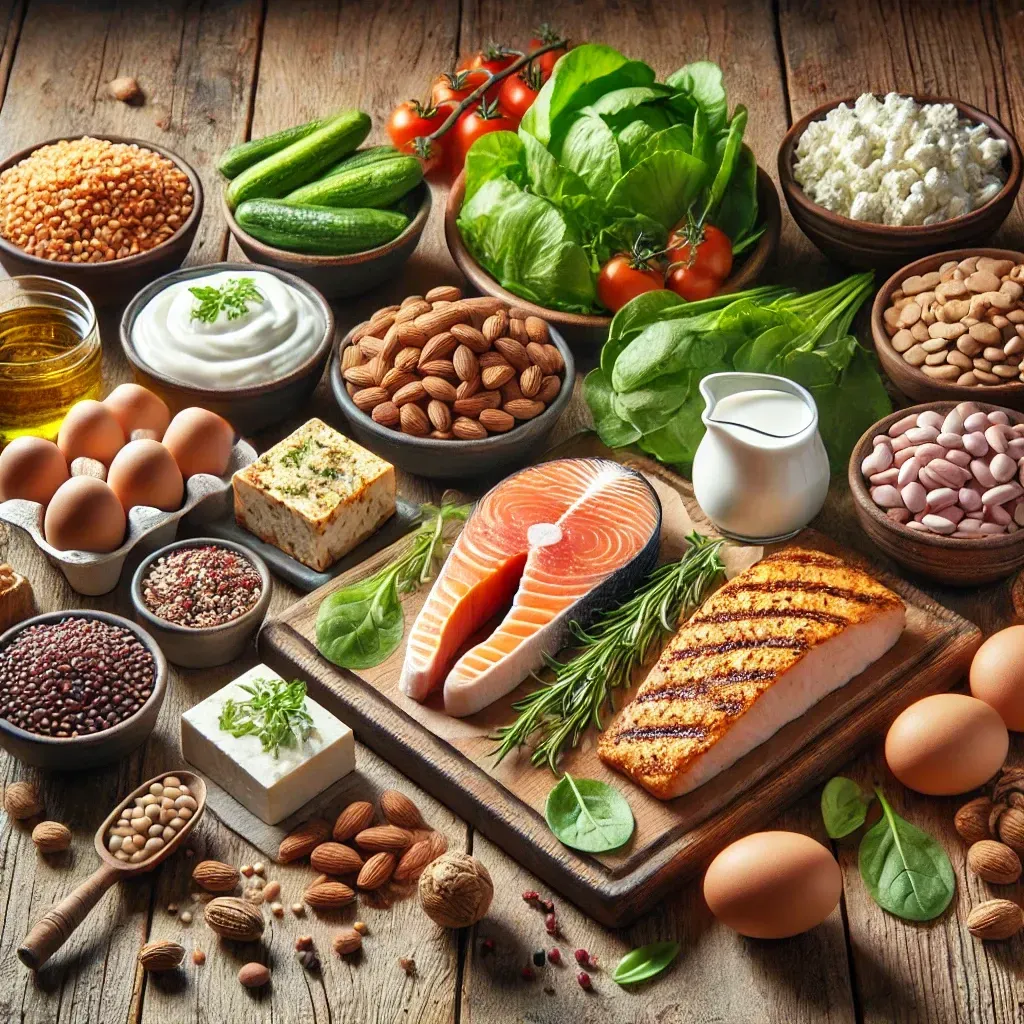
The Importance of Protein in Midlife Weight Management
Managing weight during midlife can feel like an uphill battle. With age, metabolism naturally slows, muscle mass begins to decline, and hormonal changes can make it challenging to maintain a healthy weight. Protein, however, is a powerful nutrient that plays a crucial role in weight management.
Increasing protein intake can help curb cravings, support muscle mass, and boost metabolism—all essential factors for managing weight effectively in midlife. This post will explore how protein works in the body, its impact on midlife weight management, and practical tips for incorporating more protein into your diet.
Understanding Protein and Its Role in the Body
Protein is a macronutrient composed of amino acids, which are essential building blocks for the body. It’s involved in repairing tissues, producing enzymes and hormones, and supporting immune function.
Protein is particularly important for weight management because it helps build and maintain lean muscle mass, which naturally declines with age. More muscle mass means a higher metabolic rate, as muscle burns more calories than fat.
When protein intake is sufficient, the body is better equipped to burn fat and preserve muscle, even when in a calorie deficit. Protein also has a thermic effect—meaning it requires more energy for digestion, helping to increase metabolic rate.
This thermic effect, combined with muscle maintenance, makes protein a valuable ally for midlife weight management.
Protein's Impact on Midlife Weight Management
Weight gain is a common challenge in midlife, often due to changes in metabolism, hormonal fluctuations, and a tendency to lose muscle mass. Protein can help mitigate these effects by stabilizing blood sugar, reducing cravings, and increasing satiety.
A higher protein intake helps curb sugar cravings, which can reduce overall calorie intake and prevent energy crashes. When protein is included in meals, it slows digestion, keeping you full longer and reducing the urge to snack. Studies have shown that diets higher in protein lead to greater fat loss, particularly for midlife individuals, as they address both hunger and metabolism more effectively than low-protein diets.
Practical Tips for Incorporating More Protein into Your Diet
Boosting protein intake doesn’t have to be complicated. Here are some easy ways to incorporate more protein into your daily routine:
Choose High-Protein Foods: Include foods like lean meats, fish, eggs, Greek yogurt, cottage cheese, beans, lentils, and tofu. These provide quality protein and essential nutrients to support overall health.
Balance Protein Throughout the Day: Aim to include protein in every meal and snack to keep energy levels stable and curb cravings. Try having eggs or yogurt in the morning, a protein-rich lunch like chicken or tofu salad, and a balanced dinner with lean meat or legumes.
Focus on Protein Quality: Opt for high-quality, digestible proteins to maximize their benefits. Animal proteins are generally complete proteins, providing all essential amino acids, while plant-based proteins like quinoa and lentils can be combined for a complete amino acid profile.
These tips can help you increase protein intake effectively and make it a regular part of your diet.
Conclusion
Protein is a key nutrient for managing weight in midlife, helping to control cravings, boost metabolism, and preserve muscle mass.
By considering protein intake as part of a balanced, healthy lifestyle, you can support weight management goals and feel more energetic and satisfied throughout the day.
Take time to assess your current diet and see where you can add more protein-rich foods to enjoy the benefits of this powerful nutrient for long-term health and well-being.